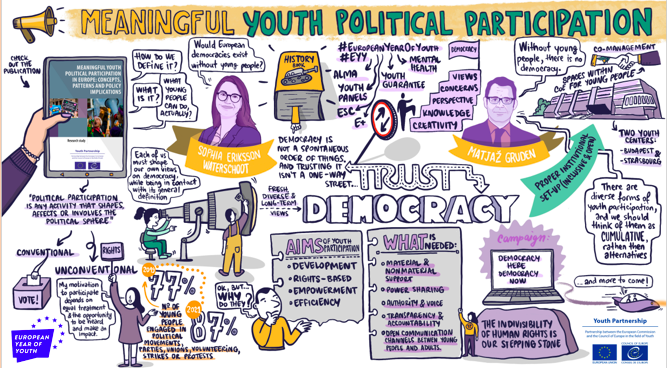Gerrymandering Impact on Representation - Unveiling Electoral Effects
Explore the repercussions of gerrymandering on political representation and electoral results. Discover how gerrymandering influences our democracy.

The Shadow of Gerrymandering: A Closer Look at its Impact on Political Representation and Electoral Outcomes
Gerrymandering is a term that has become synonymous with the dark underbelly of American politics. It refers to the manipulation of electoral district boundaries to favor one political party over another, often resulting in distorted political representation and skewed electoral outcomes. While gerrymandering is not unique to the United States, its impact on American democracy has raised concerns and ignited debates about fairness, representation, and the health of the electoral system. In this blog post, we will delve into the intricate world of gerrymandering, examining its origins, methods, and the profound consequences it has on political representation and electoral outcomes.
Understanding Gerrymandering
The term "gerrymander" was coined in the early 19th century when Massachusetts Governor Elbridge Gerry approved a salamander-shaped electoral district to benefit his party. Gerrymandering typically takes two main forms:
Partisan Gerrymandering: In this form, the party in power redraws district boundaries to maximize its electoral advantage. They concentrate opposition voters into a few districts, ensuring their dominance in a majority of districts.
Racial Gerrymandering: This involves manipulating district boundaries to dilute the voting power of racial or ethnic minorities, often violating the Voting Rights Act of 1965.
Impact on Political Representation
Underrepresentation: One of the most glaring impacts of gerrymandering is the underrepresentation of minority parties. When district lines are drawn to favor one party, voters from other parties find themselves with limited or no voice in their government. This erodes the fundamental principle of democracy - that all citizens' voices should be heard and represented.
Polarization: Gerrymandering contributes to political polarization by creating safe districts for incumbents. In these districts, the real electoral battle occurs within the party primaries rather than the general election. As a result, politicians are incentivized to cater to the extremes of their party, stifling moderation and bipartisan cooperation.
Entrenchment of Incumbents: Gerrymandering can make it exceedingly difficult for challengers to unseat incumbents. When districts are drawn to protect the party in power, incumbents often face little to no competition in the general election, leading to complacency and reduced accountability.
Impact on Electoral Outcomes
Distorted Majorities: Gerrymandering can produce skewed electoral outcomes where the party that receives fewer overall votes still secures a majority of seats. This undermines the principle of majority rule, as a minority can effectively control the government.
Wasted Votes: In gerrymandered districts, many votes for the opposition are effectively "wasted" because the outcome is predetermined. This can lead to voter apathy and a sense of disenfranchisement.
Inefficient Governance: When one party's dominance is assured due to gerrymandering, it can result in less effective governance. Without the need to appeal to a broad spectrum of voters, there is less incentive to pass policies that benefit the entire population.
Efforts to Address Gerrymandering
Independent Redistricting Commissions: Some states have established independent commissions to redraw district lines, reducing the influence of partisan politics in the process.
Legal Challenges: Advocacy groups and individuals have brought lawsuits against gerrymandered districts, resulting in some courts mandating redrawn maps.
Public Awareness: Raising awareness about gerrymandering and its consequences is crucial. Grassroots movements and public pressure have led to reforms in several states.
Erosion of Trust in Democracy: Gerrymandering erodes public trust in the democratic process. When citizens perceive that their votes are effectively nullified due to the manipulation of district boundaries, they become disillusioned and disengaged from politics. This can lead to lower voter turnout, as people feel their voices don't matter.
Racial and Minority Disparities: Racial gerrymandering can disproportionately affect minority communities. By diluting the voting power of these communities, gerrymandering can undermine the principle of equal representation. The Supreme Court has recognized the importance of addressing racial gerrymandering to protect the voting rights of minority populations.
Impact on Policy Priorities: Gerrymandering can also influence policy priorities. When politicians are more concerned about primary challenges from their own party's extreme wing than competition from the opposition, they may cater to the preferences of a smaller, ideologically-driven base rather than the broader electorate. This can lead to policy decisions that do not align with the majority of the population.
Technology and Gerrymandering: Technological advancements in data analysis have made it easier than ever to engage in precise gerrymandering. Parties can use sophisticated algorithms to identify and manipulate voter demographics to their advantage. This makes the need for transparent, non-partisan redistricting processes even more critical.
Partisan Gridlock: Gerrymandering contributes to the gridlock and polarization that plagues modern politics. When representatives face little risk of losing their seats to the opposition, they have less incentive to work across the aisle and find common ground. This leads to legislative stalemate and an inability to address pressing issues.
National vs. State Approaches: While some progress has been made at the state level to address gerrymandering, there is a growing debate about the need for national standards to ensure fair and consistent redistricting practices across all states. Some argue that federal legislation is necessary to prevent extreme partisan manipulation of district boundaries.
Ongoing Reforms and Challenges: Several states have taken steps to combat gerrymandering by establishing independent redistricting commissions or implementing strict criteria for map drawing. However, challenges remain, and gerrymandering continues to be a contentious issue in American politics. It often requires vigilance from advocates, courts, and the public to hold politicians accountable for fair redistricting.
The Role of Public Engagement: Public awareness and engagement are essential in the fight against gerrymandering. Citizens must understand the impact of gerrymandering on their representation and be active participants in advocating for fair electoral processes. Grassroots movements, like those calling for redistricting reform, have demonstrated the power of collective action in pushing for change.
Gerrymandering remains a significant challenge to American democracy, with far-reaching implications for political representation and electoral outcomes. It distorts the fundamental principles of fairness and equal representation, contributes to polarization, and undermines trust in the democratic process. Addressing gerrymandering requires a multi-pronged approach, including legal challenges, public awareness campaigns, and reforms at both the state and national levels. Ultimately, a commitment to fair and transparent redistricting is essential to ensuring that the voice of every citizen is heard in the halls of government.
What's Your Reaction?















